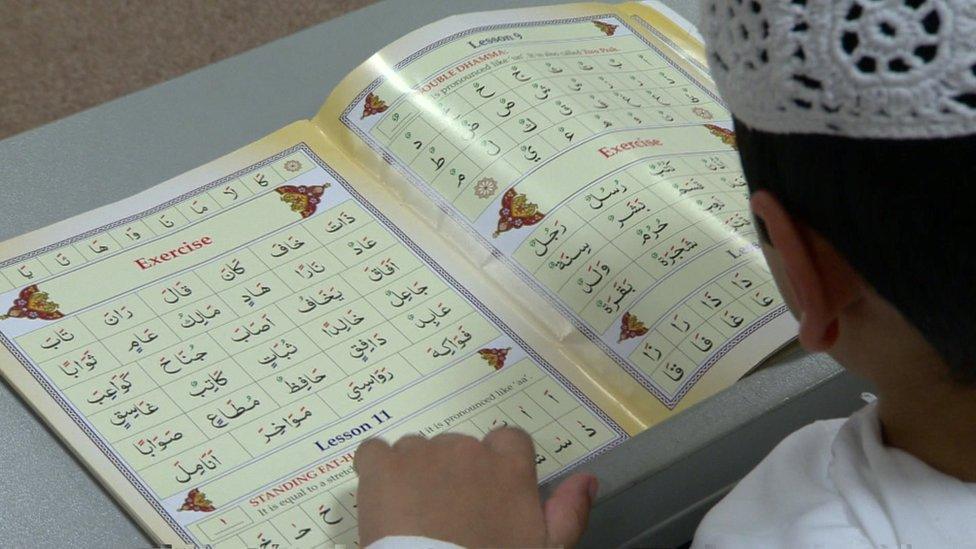Ofsted steps into debate over parents' right to choose education
- Published
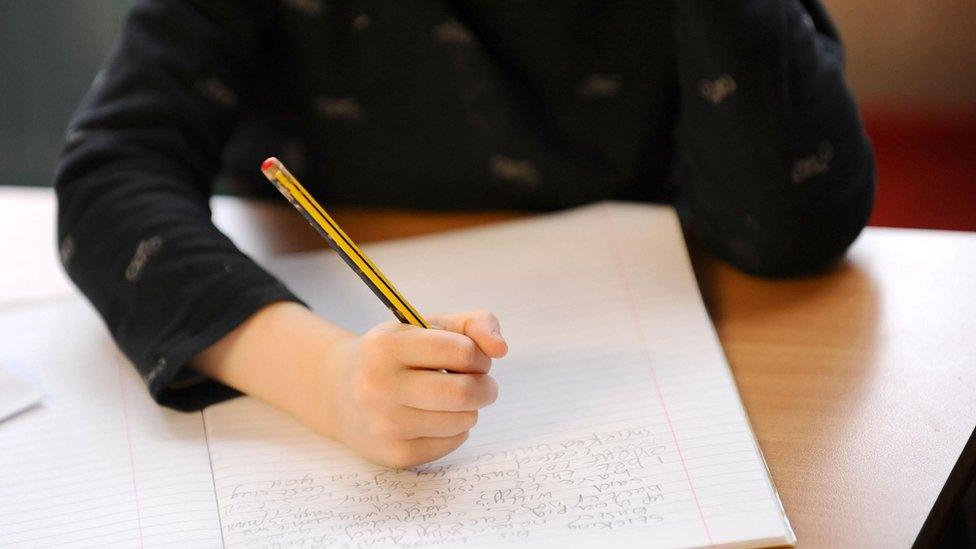
The chief inspector of schools has never been afraid of controversy, and with this latest intervention against unregistered schools he is firmly stepping into the debate about how and where people can choose to educate their children.
It is perfectly legal to choose to educate your children at home, and if you do make that choice there is no obligation to follow a particular curriculum.
It is also perfectly legal to run a part-time tuition centre to offer additional teaching and support to children who are home-educated.
And if your part-time education centre teaches children for fewer than 20 hours a week there are remarkably few obligations.
You don't have to register with the authorities or be open to inspection, unlike a private fee-paying school.
This has created a grey area of the law, which Ofsted argues is being exploited by people who are running unregistered premises, some of which are quietly opening for as many hours as a school.
Some of what the Ofsted inspectors has found provides a strong case for intervention. In some places they are reporting poor physical conditions including dirty mattresses, open drains and a lack of running water.
Ofsted shut the schools because children were at risk, said Sir Michael Wilshaw
Many part-time centres rely heavily on volunteers, and again there is evidence that not all of them are undergoing the checks expected of people working with children.
This means checks on criminal records and other intelligence which would raise concerns about whether there have been allegations or proven incidents of sexual or physical abuse.
It's hard to argue against these kinds of safeguards to protect children.
Misogynistic and homophobic views
Larger mosques and madrassas now routinely screen their staff and volunteers, for example, so why shouldn't tuition centres?
Where Ofsted's approach will provoke more controversy is in its judgements about a "narrow Islamic curriculum", and concerns that attempts to make sure children are taught British values are being undermined.
This is partly based on texts found in some centres, which Ofsted says contain views which are misogynistic, homophobic and anti-Semitic.
We don't know exactly what the texts say, although I understand the text described as homophobic suggests that it is acceptable to kill gay people.
So what kind of place is Sir Michael Wilshaw talking about? The only site which has been named was calling itself Bordesley Independent School before it closed after a visit from Ofsted.
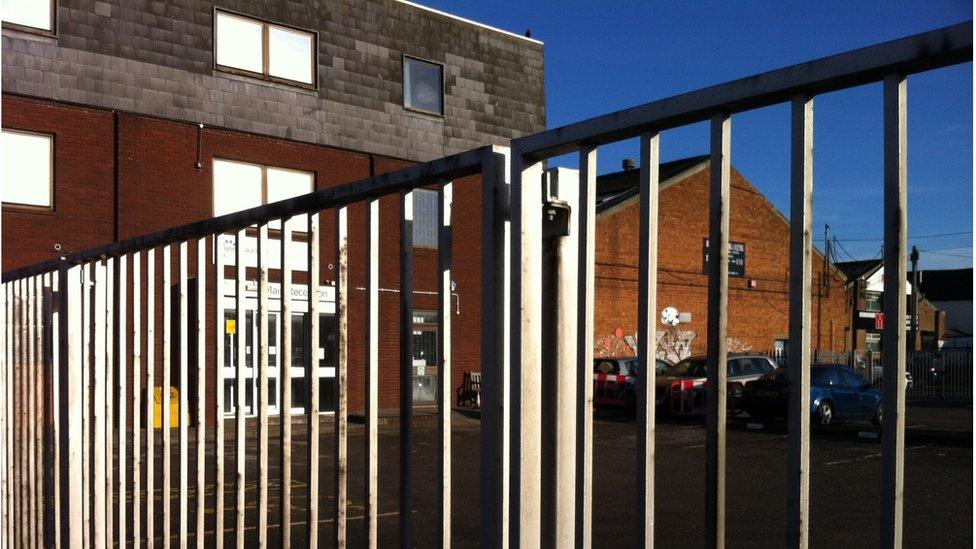
The unregistered Bordesley Independent School in Birmingham was closed following a visit by Ofsted
It charged fees, not uncommon among part-time education centres, which often describe themselves as "flexi-schools".
Inspectors reported girls being ushered out the back before they gained entry, dirty mattresses and a lack of running water in the toilet.
This week the building on the edge of an industrial estate remained closed, although a courier was still trying to deliver exam papers when I visited.
Closed communities
But not all flexi-schools in Muslim communities are in such poor premises. Some are housed in community centres, or share converted buildings with charities.
Over the last few months I've approached several in different parts of England to ask if they would speak to the BBC.
None agreed, either fearful of being judged or simply preferring to turn away from anyone from outside the local community.
In one converted pub I was politely shown to a prayer room, before it was decided that no-one was available to speak to me about the education being offered to the children I could clearly hear.
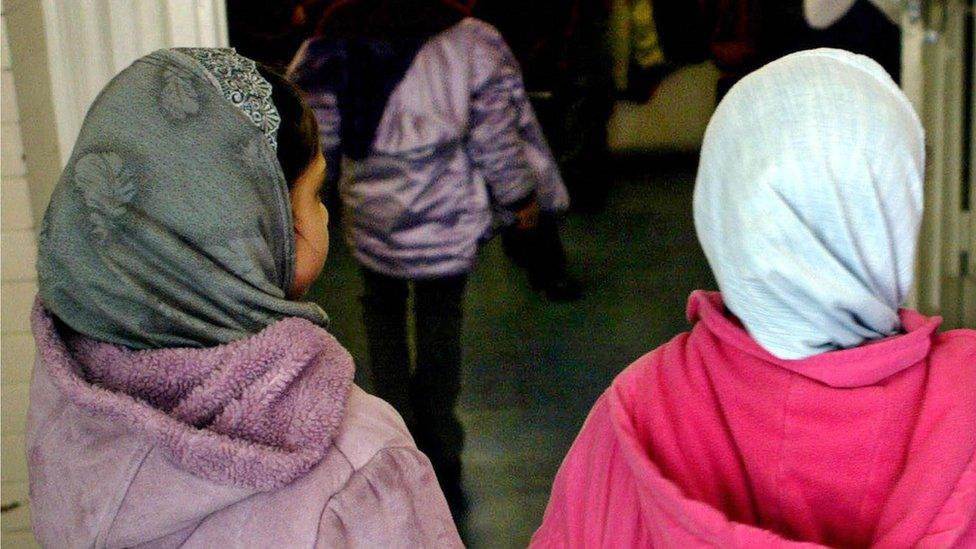
The places visited by Ofsted so far have been mainly in Muslim communities
Another told me that it wasn't ready to explain its education to the outside world.
Some may be choosing to instruct children in a way which is deeply socially conservative by many people's standards. Others prefer a focus on global citizenship, and shared Muslim values, to the British values which now must be incorporated into teaching in England's schools.
One parent, who had been through what he considered an academic hothouse of a boys' grammar school, told me the flexi-centre he'd chosen was offering an education in small classes that allowed children to progress at their own pace.
This is a choice being made by parents, opting for an education which they believe matches their values.
Parents' rights
Some low-income families are finding fees of about £1,200 a year for each child to be educated somewhere with few or no qualified teaching staff.
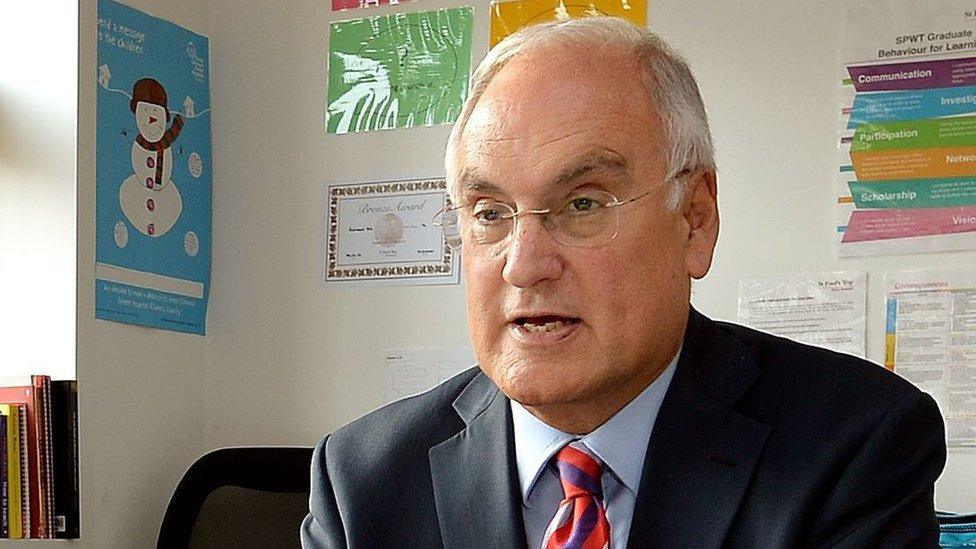
Sir Michael Wilshaw would like all part-time education centres to close and have to register from scratch
This is about a quarter of the amount the state would spend on educating their child at a local school, at the most conservative estimate. It's also less than registered independent Muslim schools charge for a primary stage education.
So where does this debate leave the right to educate your child as you see fit?
Sir Michael Wilshaw told me that "of course" parents have got a right to bring up a child with a different view and a focus on their religion, "but they've got to bring up their child with awareness of other faiths and beliefs, other ways of living".
While the places visited by Ofsted so far are mainly in Muslim communities, the new team of inspectors will apparently look at any facilities in orthodox Jewish and Christian communities which may be taking advantage of the law.
The consultation under way at the moment by the Department for Education will determine how regulation should be tightened.
Ministers want to be able to intervene in and regulate anywhere children receive more than six to eight hours of instruction a week, without curtailing the right of parents to home-educate their children.
It's clear Sir Michael Wilshaw would prefer that all part-time tuition centres, flexi-schools and education centres are forced to close and apply for registration from scratch.
The government may choose to tread more gently, coaxing places that are willing to consider becoming an independent Muslim school towards regulation.
- Published11 December 2015
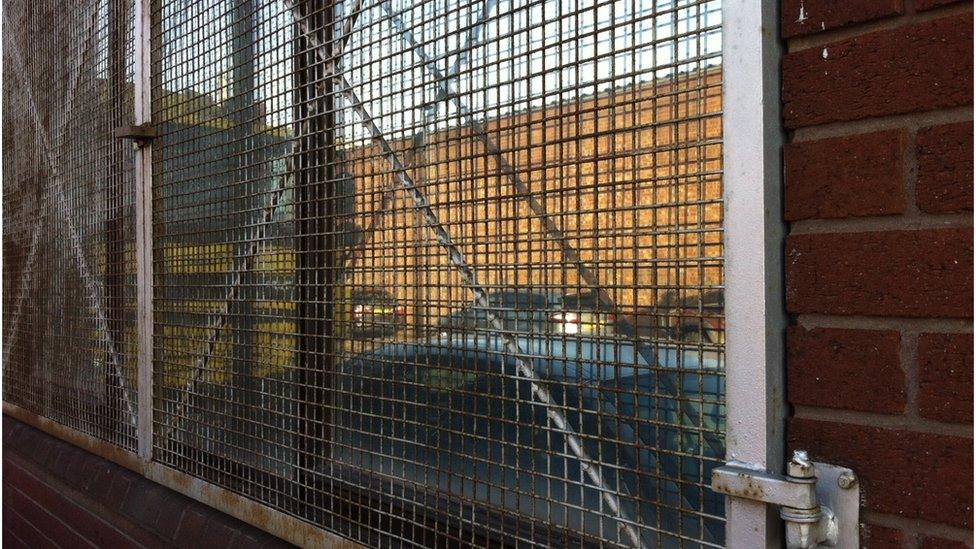
- Published26 November 2015
